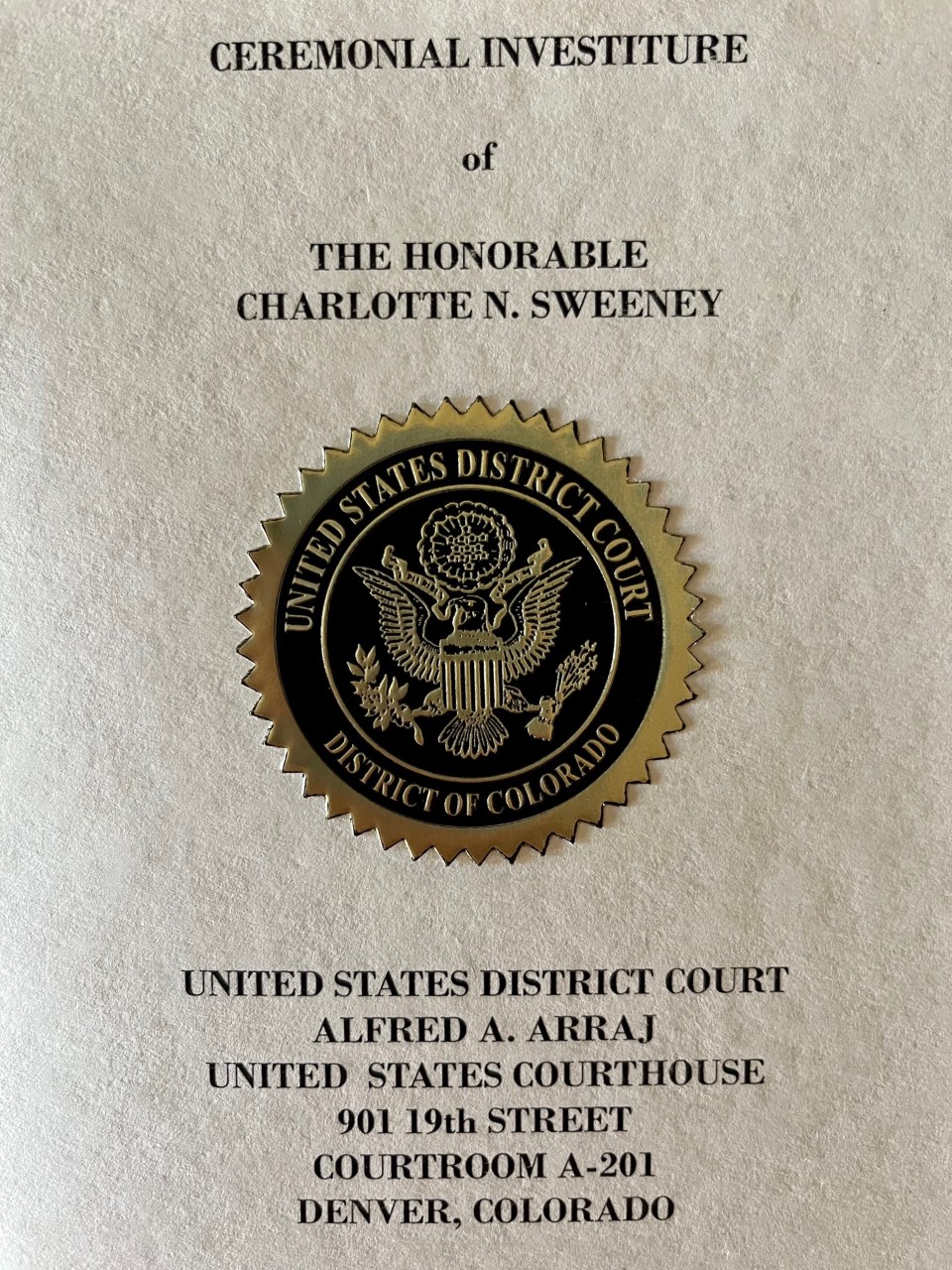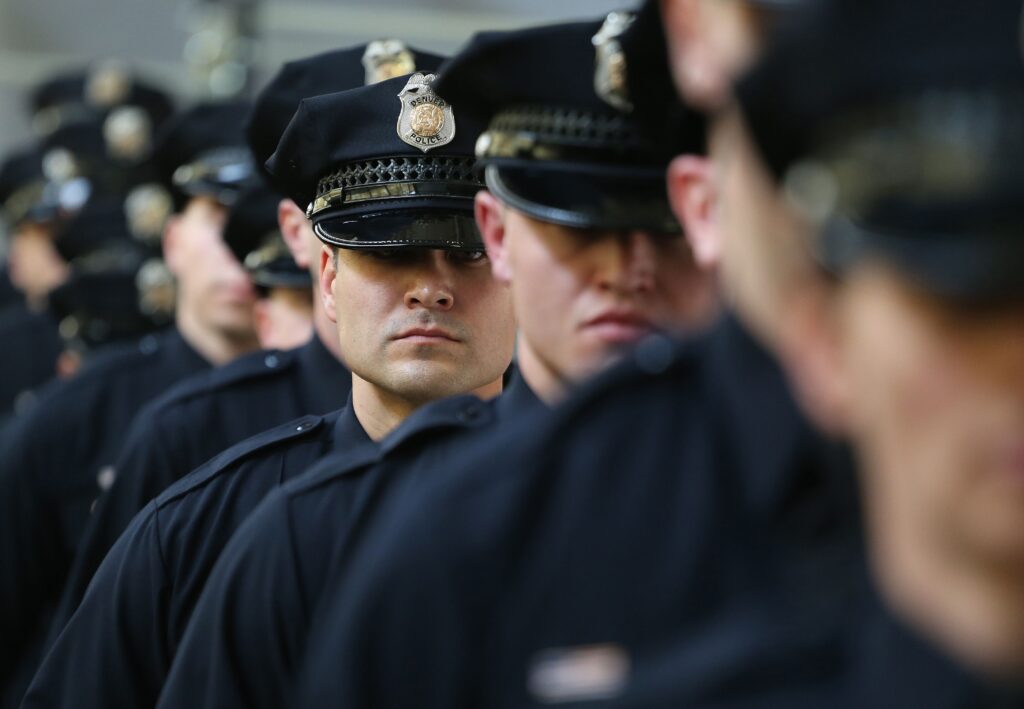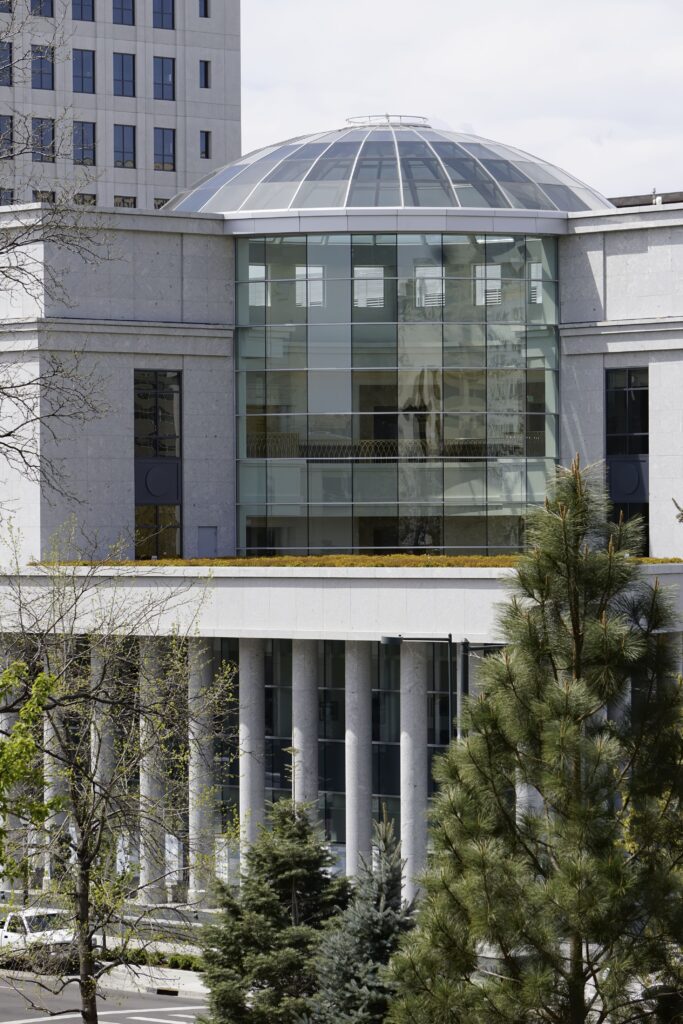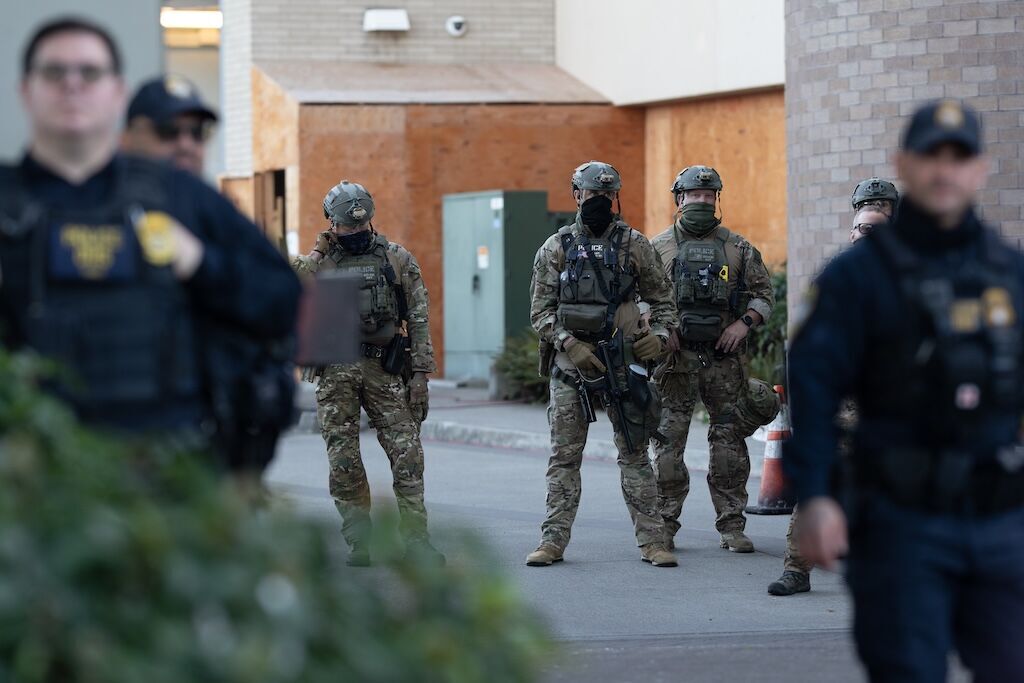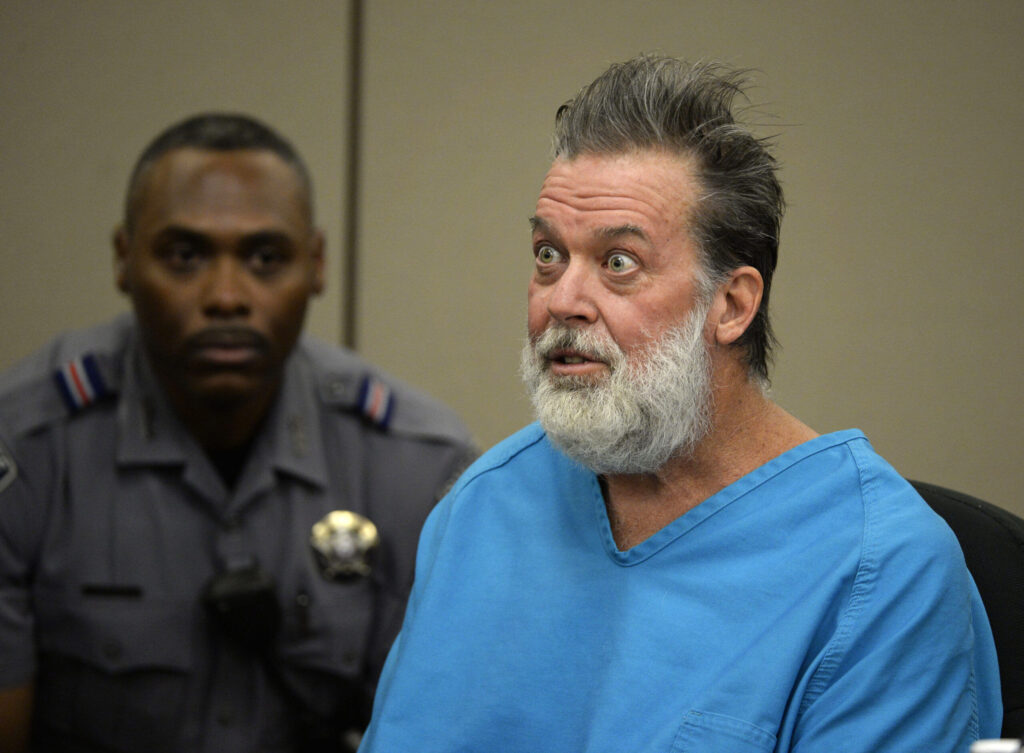‘The door is now open’: Charlotte Sweeney officially sworn in to history-making judgeship
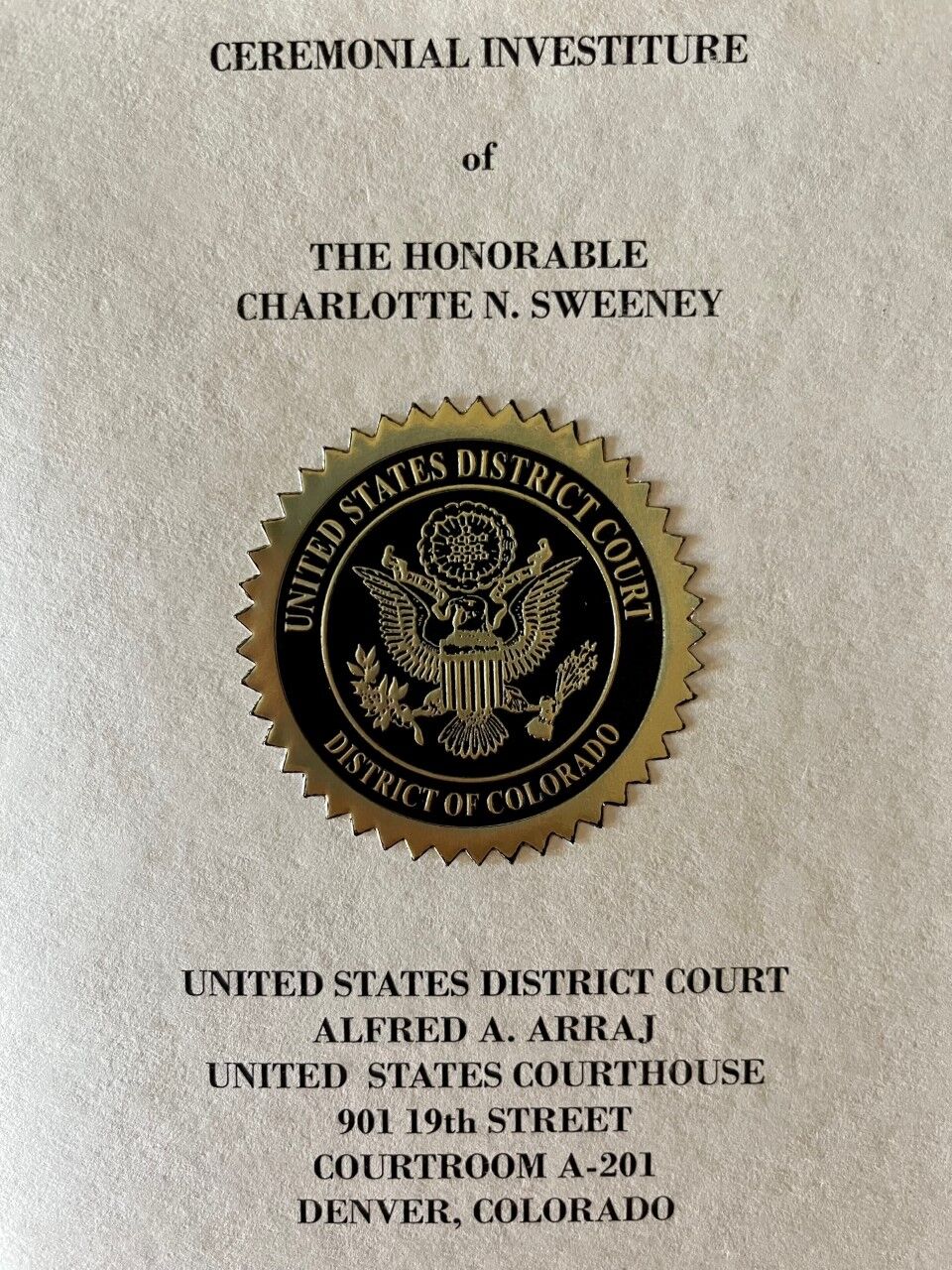
Charlotte N. Sweeney paid tribute Friday to every woman who preceded her as a trial judge on the U.S. District Court for the District of Colorado, observing they all made history for being a “first” in one way or another.
“For me it’s important to name the firsts. It’s only when you celebrate the first that you can guarantee it’s not gonna be the last,” said Sweeney, the first openly gay federal judge for Colorado.
Friends, family and colleagues of Sweeney’s attended her formal swearing-in ceremony, known as an investiture, at the Alfred A. Arraj U.S. Courthouse in downtown Denver on Oct. 21. An appointee of President Joe Biden, she began handling cases in early August after the U.S. Senate confirmed her to the state’s seven-member federal trial court earlier this year.
The men who recommended her to the White House, U.S. Sens. Michael Bennet and John Hickenlooper, were present at her swearing-in.
“I never stop remembering how fragile this democracy is, and the responsibility of every citizen – and I would say, in particular, members of the bar – to make it more democratic, more fair and more free,” said Bennet. “That is what Charlotte Sweeney has done every step of the way.”
Hickenlooper added that Sweeney spent her career as a lawyer pushing back against discrimination, “representing Coloradans who didn’t, or in many cases, wouldn’t have sufficient representation. It’s a testament to her character, to her judgment.”
Sweeney graduated from the University of Denver’s law school in 1995. At the time of her appointment, she was a workers’ rights attorney and a partner at her own Denver firm. Sweeney also played a role in crafting landmark equal pay legislation the Colorado General Assembly enacted in 2019.
In her remarks, Sweeney alluded to a letter the incoming Biden administration sent to Democratic senators in late 2020, expressing the president-elect’s interest in appointing judges from historically-underrepresented backgrounds and demographics – including civil rights attorneys or the LGBTQ population.
“I was not a candidate without risk. What prompted me to apply was really an initial letter the White House sent out seeking candidates from diverse backgrounds,” she said. “I read that and I thought, ‘Yeah, right. We’ll see what happens.'”
She added: “Be careful what you wish for.”
Sweeney’s investiture happened to fall two weeks after the death of Zita L. Weinshienk, the first woman appointed to be a federal judge in Colorado in 1979. Sweeney spoke of the role Weinshienk played in her own ascent to the bench by recalling an anecdote from her childhood. Sweeney and her brother would get into playful physical fights, until things went too far and her brother retreated to the bathroom to lock the door.
But Sweeney would sometimes be fast enough to stick her foot in the door and prevent it from closing.
Likewise, Weinshienk “got to the door before it closed. She stuck her foot in there and made sure it didn’t close,” Sweeney explained.
Weinshienk was then followed by a series of “firsts”: Marcia S. Krieger, the first woman to be chief judge of the district court. Christine M. Arguello, the first Latina federal judge in Colorado. Regina M. Rodriguez, also a Biden appointee who became the first Asian-American judge last year. And, shortly after Sweeney’s confirmation, Nina Y. Wang, the first magistrate judge to be elevated to the district court bench.
“The door is now open. And for those who know me, I have shoes for days. I have boots,” Sweeney said. “The door is not gonna close on my watch.”
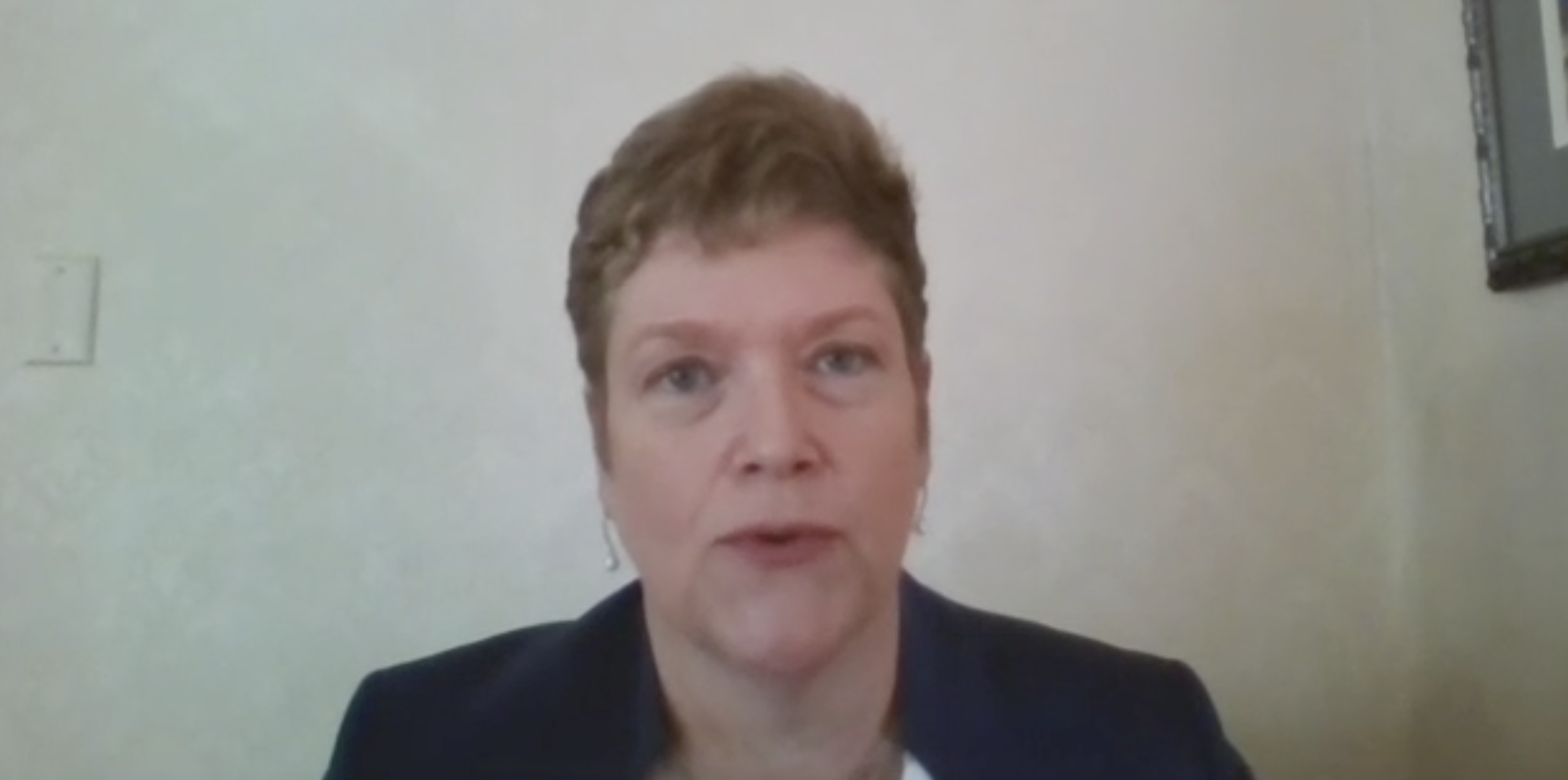
In her first two months, Sweeney has already handed down key rulings in civil rights cases. She found a Rifle police officer could be held liable for shooting a suicidal man in the back, and ordered Denver’s affordable housing entity to accommodate a woman’s disability. Sweeney also found an Aurora police officer could not be held liable for briefly pointing a gun at a local physician.
Attendees at the investiture heard from Sweeney’s friend, Robbie Barr, a former Miami-Dade County judge who now runs a mediation firm in Denver. She advised Bennet and Hickenlooper they can “look forward to a spectacular legacy” for their role in Sweeney’s appointment. Barr elaborated that Sweeney would create a level playing field in her courtroom and possessed the right temperament for a judge.
“One of my favorite things about Charlotte is that she acts with courage and compassion, even when no one is looking,” Barr said. “She’s a fierce advocate for the underdog. Each fall she makes unsung trips to Juárez, Mexico, where she builds homes for the impoverished people there. I’m not talking about writing checks – I’m talking about hammers and nails, folks.”
Barr also alluded to Sweeney’s volunteer service with the Matthew Shepard Foundation, named for the gay man murdered in Wyoming in 1998 whose death helped inspire federal hate crimes legislation. Shepard’s parents, Dennis and Judy Shepard, were also present for the investiture.
Sweeney acknowledged her historic appointment was indicative of “how time can change hearts and open communities.” She poked gentle fun at the description, used during her nomination, that Sweeney would be the first openly LGBTQ woman to be a federal trial judge west of the Mississippi River.
“That phrase generated a lot of laughter in our house,” she quipped.
Sweeney also praised her daughters, Jordan and Addison, for giving her the “courage beyond measure” to pursue a judgeship. She thanked her predecessor and semi-retired senior judge, R. Brooke Jackson, for providing several of his staff for her own courtroom.
On a lighter note, Sweeney expressed tongue-in-cheek appreciation for another of her colleagues, Raymond P. Moore.
“He’s gone out of his way to come over and make me feel welcome,” she said. “He’s also gone out of his way to torment me and tease me, which, as the youngest of four children, makes me feel at home.”
Among the other dignitaries present for the investiture were Chief Justice Brian D. Boatright of the Colorado Supreme Court; state Court of Appeals judges Lino S. Lipinsky de Orlov, Christina F. Gomez and David H. Yun; U.S. Court of Appeals for the 10th Circuit Judge Veronica S. Rossman; U.S. Attorney Cole Finegan; Federal Public Defender Virginia Grady; and Kirk Taylor, the U.S. Marshal for Colorado who was sworn in to his post on Thursday.
Following Sweeney’s investiture was a reception she paid for with her own funds at the 10th Circuit’s courthouse. The next investiture – Wang’s formal swearing-in – will occur in early December.
